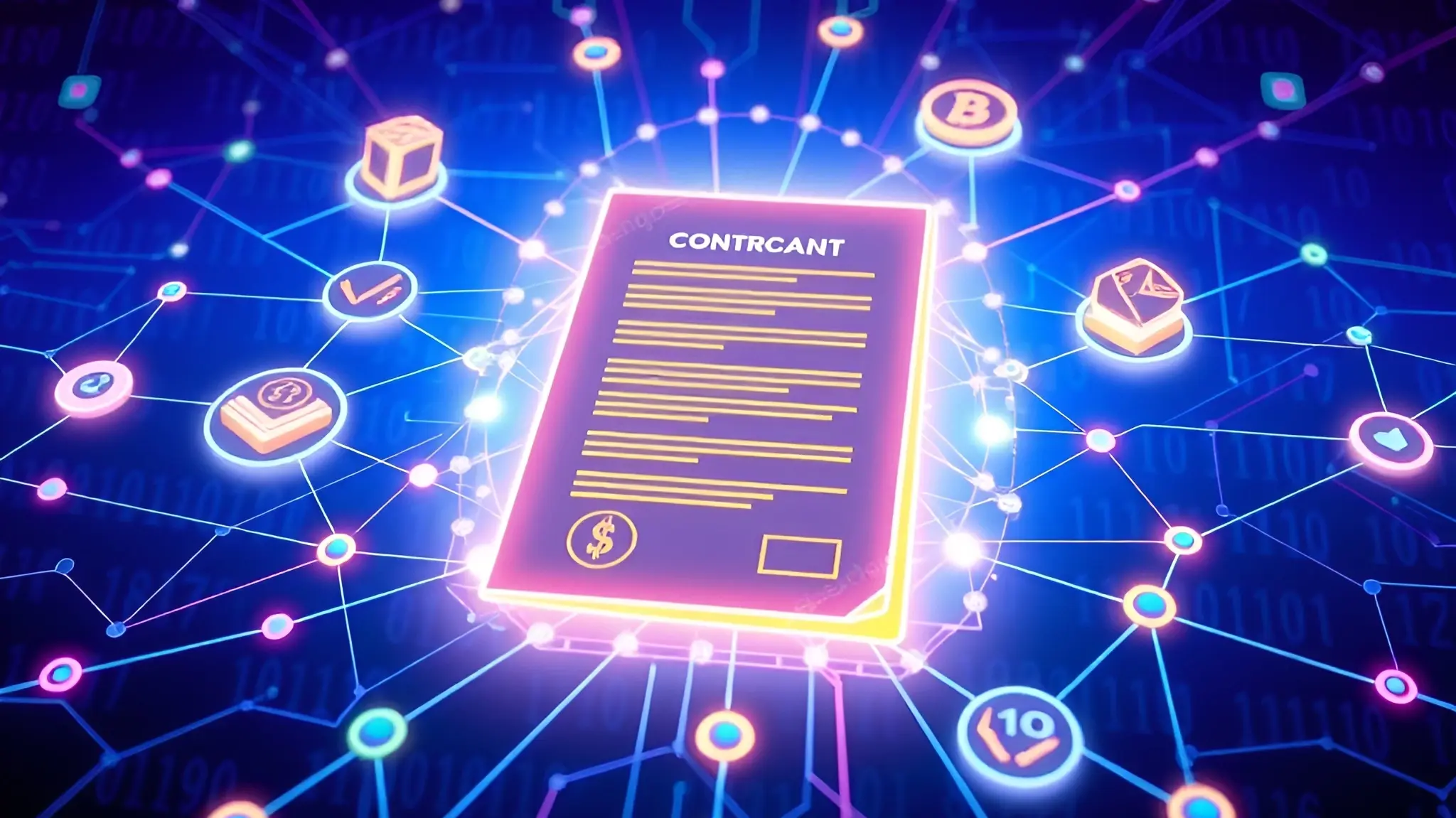What Is a Smart Contract?
A smart contract is a self-executing agreement written in computer code and stored on a blockchain.
Instead of relying on a third party like a bank or lawyer, the contract automatically enforces rules once certain conditions are met.
This increases security (thanks to cryptography) and reduces fraud, as every transaction is recorded on an unchangeable, decentralized ledger.
Key Takeaways:
ShowDefinition of Smart Contracts
Smart contracts are digital agreements directly encoded on a blockchain. Once they’re activated, they do not need intermediaries to verify or enforce any part of the deal.
Because they run on decentralized platforms, nobody can quietly alter the contract or fake transactions.
This openness makes it easier for businesses and individuals to trust the process, whether they are transferring money or automating supply chain steps.
How Smart Contracts Work
1. Set Conditions
The contract’s terms (e.g., “Release funds when goods are delivered”) are written in computer code.
2. Deployment on Blockchain
Once the code is placed on the blockchain, the contract becomes visible to the network.
3. Automatic Execution
When the predefined conditions (e.g., delivery confirmation) are met, the contract automatically carries out the agreed action, such as transferring funds or updating a shipment’s status.
4. Security Measures
Cryptographic algorithms protect data. Some smart contracts also use “oracles” to pull in real-world information (e.g., market prices or weather data), expanding what they can do.
Benefits of Smart Contracts
Smart contracts can make many processes simpler and more secure:
| Benefit | Description | Impact |
|---|---|---|
| Reduced Costs | No need for intermediaries | Greater profits/savings |
| Increased Speed | Automated execution of contract terms | Faster time-to-market |
| Enhanced Security | Strong cryptographic protections | Lower risk of fraud |
| Transparency | Records can’t be changed once written | Greater trust among parties |
| Error Reduction | Code-based rules eliminate manual mistakes | Fewer operational errors |
Use Cases in Various Industries

1. Finance
Automate loan payments, insurance claims, and peer-to-peer lending without costly middlemen.
2. Real Estate
Manage property sales and leases with clear, automatic transfers of ownership.
3. Supply Chain
Track goods as they move from production to delivery, reducing errors and counterfeit products.
4. Healthcare
Securely share patient records across providers while complying with privacy rules.
Future of Smart Contracts
New technologies like improved cryptography and artificial intelligence (AI) will likely shape how smart contracts evolve. Here are three trends to watch:
1. Enhanced Security
More advanced encryption techniques will make contracts even harder to hack.
2. Cross-Blockchain Collaboration
Increased interoperability will let contracts work smoothly across different blockchain networks.
3. Automated Compliance
AI can help contracts automatically update to meet new legal or regulatory requirements, making it easier for businesses to stay compliant.
Wrapping Up
Smart contracts work like a digital “vending machine” for agreements—once you meet the conditions (insert the right amount), you instantly get the result (receive your goods).
This automatic nature cuts down on the need for third parties and streamlines transactions.
With benefits like cost savings, speed, and increased trust, smart contracts are becoming more common across many industries, signaling a future where automated, secure, and transparent agreements could become the norm.
Frequently Asked Questions (FAQs)
Can Smart Contracts Be Modified After Deployment?
Usually, once a smart contract is on the blockchain, it cannot be changed. This protects it from tampering. Some developers include an “upgradeable” feature, but it must be designed ahead of time with specific rules for alterations.
What Programming Languages Are Used for Smart Contracts?
Solidity is commonly used for Ethereum, Vyper focuses on security, and Rust is popular for platforms like Solana. Each language offers tools and features tailored to its blockchain ecosystem.
Are Smart Contracts Legally Binding?
In many places, smart contracts can hold the same legal weight as traditional agreements, but it depends on local laws and how the contracts are written. Clear terms and proper legal frameworks help ensure enforceability.
How Do Smart Contracts Handle Disputes?
They use code-based rules to decide outcomes automatically. If a dispute needs complex judgment, an external mediator or legal system might still be necessary, since the contract’s code might not address every nuanced situation.
What Are the Security Risks Associated With Smart Contracts?
Smart contracts are only as secure as their code. Poorly written contracts can be exploited, leading to financial losses. Thorough testing, audits, and best coding practices help reduce these risks.

